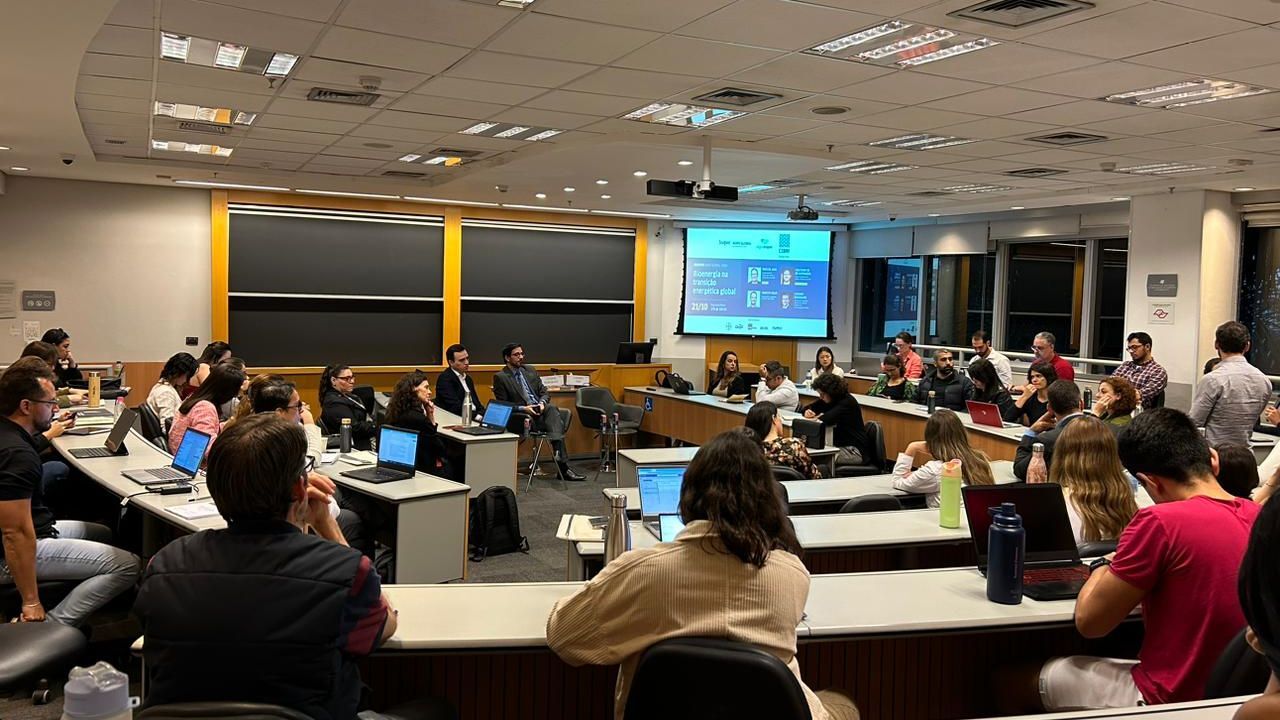CEBRI and Insper hold an event on bioenergy in the global energy transition.
- Agribusiness
- 28 october 2024

In light of the growing need to address climate change, bioenergy has become a fundamental element in the shift toward a new global energy matrix. In this context, Brazil, thanks to its robust sugar-energy sector and significant production capacity, plays a key role in discussions about reducing carbon emissions in the energy matrix. This was the central theme of the meeting hosted by the Agro Program of CEBRI in partnership with Insper Agro Global, which took place last Monday, October 21.
The event was opened by Leandro Gilio, Researcher and Professor at Insper Agro Global, and Feliciano de Sá Guimarães, Academic Director of CEBRI and Professor at USP, and featured the specialist Luciano Rodrigues, Sector Intelligence Director of the Sugarcane Industry Union (UNICA). Participants analyzed the Brazilian energy matrix, which stands out due to the high share of renewable sources such as bioenergy and hydropower.
The discussion on bioenergy also included the need for tax differentiation and public policies that recognize the positive externalities of this energy source. Another point raised was the stock of biofuels, such as ethanol from sugarcane and corn, which continues to grow, with a significant percentage of electricity generated coming from this sector. Concluding the discussions, the increase in wildfires, particularly in sugarcane-growing regions, was debated, requiring special attention and preventive measures, as they directly affect the production and sustainability of bioenergy in Brazil.
Watch in full HERE.
